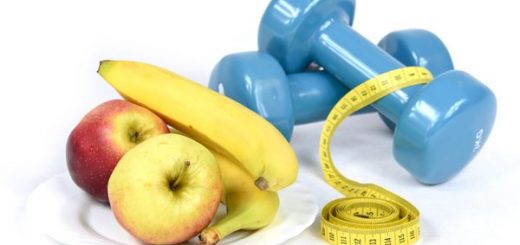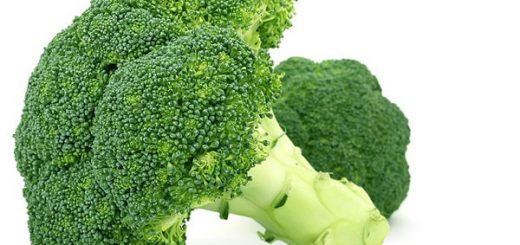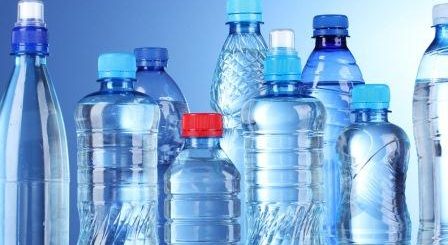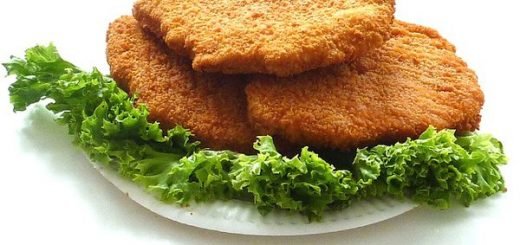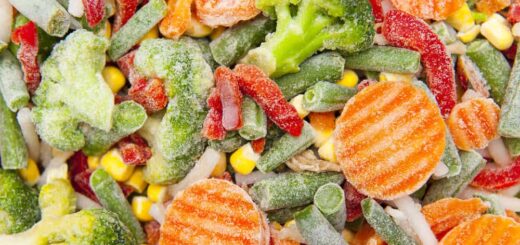Inadequate nutrition and overweight

Lack of essential nutrients in foods consumed can lead to excess food intake. These nutrients are called irreplaceable because the human body is not able to synthesize them from intermediate metabolic components. They must be included in the food. Insufficient nutrition leads to changes in the physiological functions of the body, that is, nutritional disorders.
Inadequate nutrition and calorie intake
A qualitative eating disorder also leads to its quantitative violation.
Products with a low content of essential nutrients also have a low biological value. To provide the body with such substances when eating such foods, it is necessary to increase the volume of food. This usually leads to an increase in caloric intake and an increase in body weight.
Plant foods contain significantly less protein than animals; in addition, vegetable proteins contain an insufficient amount of essential amino acids. To satisfy the body’s needs for amino acids, plant products are required much more than animals.
Imagine a person who “sits on a diet” of only white bread. He needs 56 g of complete protein per day. A piece of loaf weighing 50 g contains 2 g of protein. Consequently, to satisfy the need for protein, our “experimental” will have to eat 56: 2 = 28 such 50-gram pieces, that is, 1 kg 400 g of white bread per day.
However, the quality of wheat protein is only one third of the ideal. Therefore, to satisfy the need for essential amino acids, the poor man will have to eat three times more loaves every day – 4 kg 200 g. At the same time, essential amino acids and carbohydrates will enter the body in an amount that far exceeds the need for them. This can lead to excess energy consumption and the conversion of “extra” amino acids and carbohydrates into fat. In addition, this imaginary test subject will very soon begin to suffer from a lack of vitamins and other essential nutrients.
Fortunately, such an experiment has never been performed on living people, but many citizens with low incomes recover precisely because of the consumption of a large amount of pasta and bread.
Inadequate and excess nutrition
The problem of providing the human body with protein is paramount. The quality of protein products is directly related to their required amount: the lower the quality of the protein, the more this product is required. Such inadequate nutrition can lead to excess body weight build-up. At the same time, a lack of protein in food can cause weight loss. However, this leads to various serious diseases and pathological conditions.
Complete protein foods are an important factor in maintaining and maintaining your ideal body weight.

Low-calorie diets, complete and partial starvation usually lead to a deterioration in a person’s well-being. Chilliness, hunger, fatigue, weakness and other manifestations of lack of energy are felt. A quantitative decrease in the diet is usually accompanied by a qualitative eating disorder.
It is known that excess and nutrition leads to an increase in body weight, and insufficient nutrition – to its decrease. Malnutrition and its causes are obvious. However, these well-known patterns are not well understood, and, moreover, they are not always as straightforward as it seems at first glance. It seems obvious that in the presence of energy balance, when the arrival of nutrients corresponds to their consumption, body weight is kept at a constant level. However, the human body is not a completely balanced system. In different periods of life, the relationship between the breakdown of nutrients and the synthesis of new substances in the body is different. In childhood, synthesis processes are faster, in old age – decay. During the period of illness, the processes of decay of nutrients in the body predominate, and during recovery, the synthesis of new ones.
Insufficient nutrition leads to a decrease in the rate of energy metabolism: the body is rebuilt to economical consumption of “fuel”. Usually, adaptation to a small amount of food with a low energy value is accompanied by a loss of body weight. However, with a slight restriction on the diet, you can lose a few pounds, and then the weight stabilizes again. This is due to the fact that the body establishes energy balance at a new, lower level.
A decrease in energy consumption with a quantitative restriction of nutrition is due to a decrease in basal metabolism, sometimes reaching 33–35%.
Very often, after a low-calorie diet or complete starvation, body weight quickly recovers and even becomes more than the original value, so excess body weight appears. The reduced level of metabolism persists for a rather long time, and when returning to the usual type of nutrition, the calorie content of food turns out to be more than is necessary with a reduced level of metabolism. The energy balance is disturbed and excess food is converted to fat. It should also be borne in mind that when the calorie content of the diet decreases, the body includes biochemical mechanisms that helped its distant ancestors to survive during the alternation of periods of satiety and hunger strikes – it directs metabolic processes to synthesize fat reserves in case of possible repeated starvation. After the blockade of Leningrad was lifted, people who had been starving for a long time gained body weight very quickly,

The more often people who want to lose weight use low-calorie diets, the less they lead to the expected result. The human body, as it were, “takes revenge” for the delivered hunger stress and learns to work in an economical mode, forming excess excess weight. There is a known case when a patient, despite recommendations for the formation of normal eating behavior, used various low-calorie diets, fasting days, and long periods of complete refusal to eat. These “bullying” over their body not only did not give the desired result, but, on the contrary, led to the fact that in a year the body weight increased from sixty-four kilograms to seventy. Moreover, now neither any diet, nor active physical exercises – shaping, jogging in the morning, swimming – do not lead to the restoration of at least the original body weight.
Nutritionists often meet with people who independently use various diets and weight loss products for a long time. This creates additional problems for the doctor in the fight against the patient’s overweight.
With low-calorie diets, not only the basal metabolism decreases, oxidative processes adapt to the reduced calorie content of the diet, but the specific dynamic effect of food also decreases.
Overweight and nutrition
Normally, weight gain has certain limits due to the individual characteristics of the organism. Weight gain is limited by an increase in the specific dynamic action of food, while excess food “burns out” and energy is dissipated in the form of heat. The specific dynamic effect of food is normally about 6% of the energy value of the diet, and after too nourishing food can increase to 30-40%.
It is believed that the high specific dynamic effect of food allows a healthy and naturally thin person to eat a lot and not get fat (of course, up to a certain limit). In people prone to obesity, all food “goes for the future”, and much less energy is spent on the specific dynamic action of food.

Crucial in maintaining body weight is the body’s ability to regulate food intake in accordance with actual needs, rather than the ability to oxidize excess nutrient intake. Moderate appetite is what keeps many people lean.
Changes in eating behavior, normalization of appetite contribute to the achievement of the desired body weight and its preservation to a greater extent than any diet. The structural features of adipose tissue are also of great importance. In thin people, the subcutaneous adipose tissue contains almost 30% of water, in obese people – 13%. This is due to excess cholesterol in adipose tissue in lean people. Cholesterol contributes to the accumulation of water in adipose tissue and the formation of a fat emulsion. The fact that thin people on a high-calorie diet gain less weight than obese people is explained by the fact that in thin people, the resulting fat displaces water from adipose tissue, and body weight remains unchanged. In people who eat normally, the composition of the tissues and the water content in them are relatively constant, and the increase or loss of fat causes a change in body weight.
Many authors believe that unequal weight gain with excess nutrition is associated with a different initial state of nutritional status – a combination of anthropometric (weight, height, physique), biochemical, physiological and clinical characteristics of the body that determine the individual need for the amount and composition of food. The individual characteristics of the body also determine which energy sources – carbohydrates or fats – are primarily used for muscle activity. Carbohydrates are found in the blood as glucose and are stored in the body as glycogen, a complex carbohydrate similar in structure to starch. The largest amount of glycogen is deposited in the liver, less directly in the muscles. People with high muscle mass and a good baseline nutritional status,
The nature of physical activity is of great importance in changing and maintaining body weight. When hard work is done, the muscle is powered by carbohydrates, and when it is relatively light, it is fats. Vigorous exercise is not recommended for fat loss. Long-term, but moderately intense loads will give a greater effect.
When obese people are hungry or a low-calorie diet is accompanied by exercise, then mostly adipose tissue is lost, and muscle, skin and other tissues are affected to a lesser extent. Against the background of physical inactivity, fasting and a low-calorie diet lead to the loss of a large amount of proteins from lean tissues, and to a lesser extent – to the loss of fat mass. Protein loss from a low-calorie diet depends on the quality of the food. With a mixed low-calorie diet, providing 0.5-1.7 g of protein per 1 kg of body weight, the balance of protein metabolism is close to equilibrium. With a one-sided low-calorie carbohydrate diet, protein losses are unacceptably high.
A decrease in the volume and calorie content of food, as a rule, is accompanied by a deficiency of antioxidants – substances that neutralize free radicals. Free radicals are an inevitable by-product of all biochemical processes associated with oxidation, including respiration. At the same time, these are dangerous, aggressive compounds that oxidize and destroy the surrounding molecules. An excess of free radicals leads to the development of diabetes mellitus, coronary heart disease, cancer and many other diseases, contributes to the disruption of fat metabolism and causes the processes of premature aging of the body.
Antioxidants include some vitamins, minerals and biologically active substances of plant origin (polyphenols, tannins, etc.). The main antioxidants and food products, in which they are especially abundant, are presented in Table 1. With a lack of vegetables and fruits in the diet, the deficiency of antioxidants should be replenished by taking vitamin and mineral preparations.





